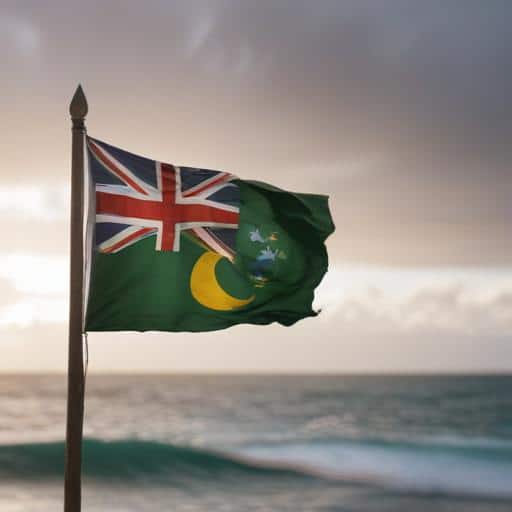Cook Islands Prime Minister Mark Brown has affirmed his intention to only renegotiate constitutional ties with New Zealand if a new agreement emphasizes the nation’s increased independence, amidst escalating tensions over recent agreements with China. This declaration risks igniting further disputes with Wellington, especially as New Zealand asserts that Brown’s dealings breach long-standing constitutional accords established in 1965, 1973, and 2001.
The friction arises from agreements related to a proposed passport for the Cook Islands and a “blue economy” partnership with China focused on seabed mineral exploration and port development. New Zealand’s Foreign Minister, Winston Peters, has previously stated that such moves need to align with New Zealand’s interests, emphasizing the necessity for prior consultations on foreign policy between both nations. Cook Islanders enjoy the privileges of New Zealand citizenship, highlighting the importance of this relationship.
In response to New Zealand’s discontent, Brown has asserted that the Cook Islands has evolved into a more independent state over the decades. He expressed reluctance to revert to colonial-era agreements, aiming instead for a revision that honors the self-governing status of his nation. Brown noted that he seeks a review of their relationship that acknowledges their position as one of the first high-income countries in the region, with a strong international voice.
Despite his push for greater independence, Brown has faced backlash from New Zealand officials who accuse him of bypassing obligations under the free association pact. New Zealand’s stance remains clear: while Cook Islands can pursue independence, the decision should reflect the will of its citizens. There are ongoing discussions about the implications of the recently signed agreements with China, with Peters asserting that New Zealand would assess these developments carefully before deciding on subsequent actions.
The situation is further complicated by rising political unrest within the Cook Islands, where opposition leaders have voiced public concerns about potential threats to sovereignty and called for greater transparency in international dealings. As the Cook Islands Parliament prepares for debates on these issues, Brown has emphasized the value of democratic processes and public engagement in shaping decisions that affect the nation’s future.
Thus, the ongoing dialogue between the Cook Islands and New Zealand could represent a crucial moment for both nations—one that may foster a reimagined partnership characterized by mutual respect and collaboration while navigating the complexities of global geopolitics. There is hope that constructive communication will enhance understanding and reaffirm commitments to shared interests, encouraging growth and stability in the Pacific region.

Leave a comment